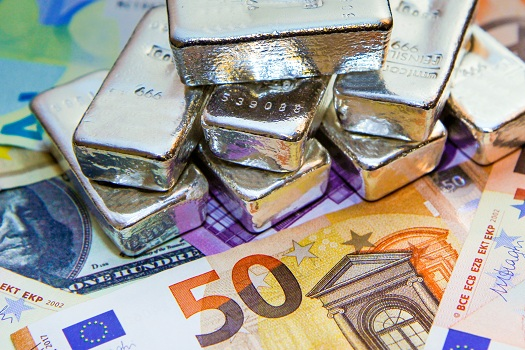Which Forms of Silver Are Easiest to Sell?
Investing in silver comes with many perks, including the fact that it tends to be a more affordable option for newer or budget-conscious investors than what’s common with gold. As for your options with silver, physical forms give you more possibilities with buying, selling, and trading. Among the physical types of silver commonly available today, silver coins frequently top the list of what’s easiest to sell. The experienced precious metals dealers from First National Bullion and Coin explain some of the ways to sell silver easily.
Officially Minted Silver Coins Appeal to Buyers Worldwide
Silver coins are considered the easiest to sell, since it’s fairly easy to quickly liquidate (i.e., get cash for) coins. For example, American Silver Eagles are the top silver bullion coin in the world, according to Goldsilver.com. This means you can go to any reputable buyer with these particular coins and expect to receive a reasonable offer. The coins that are easiest to sell are ones produced by sovereign mints or issued and backed by official governments.
Be Cautious with Silver Rounds
Silver rounds look very similar to silver coins, but it’s easier to sell coins than rounds. Rounds are coin-shaped pieces of silver produced by private mints. There’s still a significant amount of precious metal content in rounds, but they aren’t usually as widely valued as silver coins. One reason is because some privately minted silver rounds are issued for specific events, such as the Olympics or another major sports event. While certain collectors may find commemorative or limited edition rounds appealing, sellers rarely get more than what was paid for this type of silver. Plus, specially designed silver rounds are often mass-produced to the extent they’re not really too rare, although there are some exceptions.
“Junk” Silver Is Kind of a Gray Area
These are silver coins that are tarnished, discolored, or otherwise not too visually appealing for one reason or another. Silver coins of this nature are usually things like old U.S. dimes or half-dollars. However, there’s still a specific silver content, which is usually around 90 percent. Also, if you do some searching for buyers, you may be able to find collectors willing to pay a fair price for older and clearly worn silver coins if they have historic value.
Silver Bars Aren’t as Universally Appealing
Silver bars are on par with coins in terms of their purity level. However, bars made of silver usually sell for less than what’s common with officially minted silver coins, since there’s not as much intricacy in design. You’ll be more likely to be able to sell silver bars for a fair price if you opt for bars that are:
• Produced by a reputable manufacturer or mint
• Clearly marked with details about purity and weight
• A size and shape that makes handling and storage easier
Preparing to Sell Your Silver
Whether you have silver coins or bars you wish to sell, increase your odds of getting a fair value by being a well-informed and prepared seller. In the world of bullion and silver, this means:
• Knowing the current market value for your silver
• Working with reputable buyers
• Having documentation of the assessed value and purity
If you’re looking for the best place to sell your silver, call on the professionals at First National Bullion. We buy and sell all kinds of precious metals, including gold, platinum, and silver bars. San Diego collectors who are looking for trustworthy dealers and high-quality service should give us a call at (858) 304-7580 to speak with one of our experienced team members.
The statements made in this blog are opinions, and past performance is not indicative of future returns. Precious metals, like all investments, carry risk. Precious metals and coins may appreciate, depreciate, or stay the same in cash value depending on a variety of factors. First National Bullion does not guarantee, and its website and employees make no representation, that any metals for sale will appreciate sufficiently to earn the customers a profit. The decision to buy, sell, or borrow precious metals and which precious metals to purchase, borrow, or sell are made at the customer’s sole discretion.


